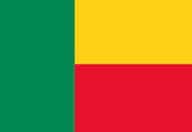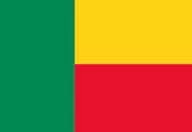

Last updated on September 11th, 2021 at 02:35 pm
Historical Richness
Benin, land of the former Kingdom of Dahomey, with its geographical fibres vibrating in cultural riches and history that spans thousands of years. Part of this past touches upon the Transatlantic Slave Trade of the 1600s that lasted around 300 years as Ouidah — the nation’s coastal town, was a main port from where many Africans were captured and inhumanely shipped abroad.
During the 17th and 18th centuries, European colonisers held more than one million African men, women and children in Ouidah’s Portuguese-claimed Fort before shipping them across the Atlantic in abominable conditions. In Benin, pillaged for the slave trade by Portugal, Britain and France, Africans were captured. Ouidah, about 40 kilometres (25 miles) from Benin’s economic hub today of Cotonou, was one of the main posts to the Americas, according to research at Yale University. The ports in Benin are comparable to slave ports in modern-day Ghana and the swathe of Central Africa that today encompasses Angola, the Republic of Congo and the Democratic Republic of Congo.
Embracing the Past
The locals are choosing to embrace this aspect of their national heritage in the wake of the Black Lives Matter movement – started in 2013 and revived in May 2020 after the murder of George Floyd at the hands of police in the United States, that sees many Africans and Afro Diaspora all over the globe taking down colonial symbols that hold painful memories of racial injustice.
Statues of colonial figures have been decapitated and names of diverse products — and even streets, have been changed across countries in Europe, the Americas and Africa in light of the recent global protests evoking the various disparities between the treatment and position of black people within various societies all over.
Eric Accrombessi, a Ouidah native and tour guide, explains the city’s stance, “Ouidah is the most marked city in the history of slavery, that’s why beyond the movements fighting for the cause of black people, we want the sites that have known this history to be restored so that history doesn’t die.”
(AFP)
US Secretary of State Marco Rubio ordered South African Ambassador Ebrahim Rasool to leave America by March 21 because he…
Early 2025 ends with IPL fever in India and cricket fans receive good news of an international schedule full of…
National teams from Africa advance their World Cup qualification pursuit as they take part in Matchday 5 of the qualifiers.…
Creative Africa Nexus (CANEX) is running the Book Factory Prize for Publishing in Africa again to award $28,000 to African…
Canadian companies have expanded their presence as major African mining stakeholders and invested more than $37 billion. Africa holds the…
The South African government wants people to plant one million trees across the nation within a single day on September…
This website uses cookies.